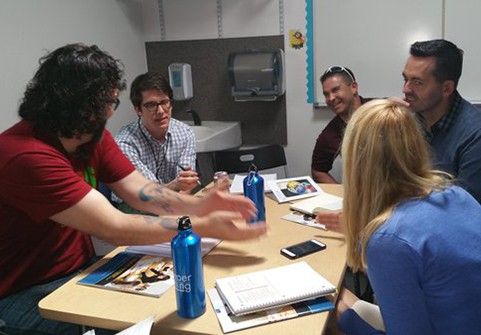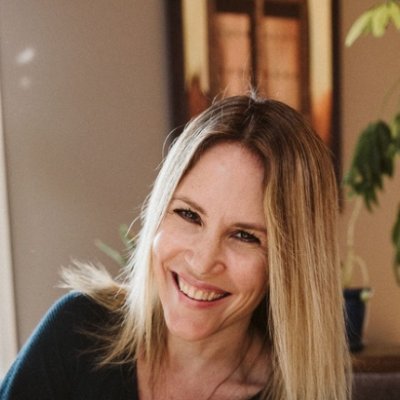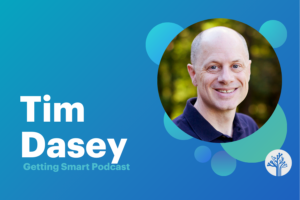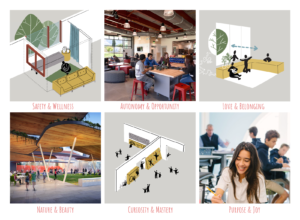6 Entry Points for Deeper Learning

“Transformation comes more from pursuing profound questions than seeking practical answers.” -Peter Block, The Answer to How is Yes: Acting on What Matters
As educators and EdLeaders, we seek to illuminate entry points to deeper learning, while knowing that the real work is, as Tony Simmons from High School for the Performing Arts said, in hearts and minds.
When diving into new and bold change work at a school, district or organization, people often wonder, “How do I/we/all of us start?”
At this year’s Deeper Learning conference, we’ve been thinking about, listening to and talking to people about how to get started. As attendees we’ve engaged in conversations that have moved the needle on how we approach our work with deeper meaning and intention. Here are six methods that have surfaced.
6 Entry Points for Deeper Learning
Be a maker.
Ron Berger of EL Education had adults in a deep dive designing blueprints for their dream home. At High Tech High, there are examples of student projects and work on display in every nook and corner. As an educator, what artifacts are there that can showcase the “makers” that you and your students are? Bring your own talents to the work you are already doing with students. Set a goal with students to demonstrate their work in exhibitions or student-led conferences.
Try out small moves for big change.
IDEO and the Stanford d. School have partnered for Hacking for School Wide Change. The leaders in this work suggest educators try a hack mindset and use levers for change to take first steps towards change at the school level. Sally Madsen has a great post on this: The “Hack” Mindset for School Change.
Exercise empathy.
The #ShadowaStudent initiative in early March had educators across all 50 states shadowing students for a day. What ways could you put yourselves in the shoes of students? For inspiration, read this reflection from BIE’s blog on principal Rigo Palacio’s experiences shadowing a student. Lisa Abel-Palmieri from Holy Family Academy said, “Design school-wide themes and tackle them through interdisciplinary project-based learning. Change the bell schedule, create spaces for building empathy and getting out into the field. Our students work 1 day a week to really get real-world skills and their learning is personalized, highly collaborative and focused on social justice…Teachers must think about how assessment changes, their role in the classrooms as a mentor and build rich and trusting relationships with kids.”
Be bold, brave and big.
The issues that students face outside the classroom are real and impact how they approach classwork. Develop projects that connect local and global issues, with reflections and applied perspectives. Suzanne Walters, a High Tech High Graduate School student, shared an example class project where students identified the intersections of local water quality with the water crisis in Flint, MI and drought stricken countries in Africa, while asking students to reflect and identify the how they can make a positive impact. If you note an injustice, or a student does, don’t skirt or shy away from it. Inch in to the discomfort, allow the conversations and learning to “go there.”
Know your students.
With students, this can look like what student keynote speakers Lewie and Carlie from High School for Recording Arts described as caring about the students, giving them enough freedom to trust and respect the students’ choices and holding them to high expectations. It’s a tall order AND it can be done/is being done/is happening in schools such as those present at the Deeper Learning conference and beyond. Jennifer Morrison of High Tech High Graduate School said, “Know your students, period. Accessibility happens when there is an emotional and meaningful connection between student and teacher. As a leader, providing ample opportunity for teachers to collaborate is critical in order to design projects that are accessible for all students, no matter what their needs may be.”
Identify and reflect on meaningful learning experiences.
Hannah Williams from Highline School District said, “Start with adults identifying the elements of the most meaningful learning experiences in their own life, the use common elements as curriculum design principles.” As Cynthia Ontiveros from EPISD said, “The best starting point is asking ourselves the critical questions. Reflecting on where we are and where we want to be is a big part of doing the work.” Sarah Bertucci from Eagle Rock Professional Development Center said, “Getting to know oneself within our inequitable world, commit to courageous conversations, be uncompromising in your belief that all students have genius and excellence within.” Jamie Baker from Pomfret Schools said, “Question all aspects of our beliefs about learning, how it happens, why, and our desired results.” Sache Crouch of Shelby County Public Schools said, “Great questions create self-reflection. Let’s start with, how do we spread deeper learning to schools and districts?”
Andrew Frishman of Big Picture Learning provided this quote from Alan Cohen: “Don’t wait until conditions are perfect to begin. Beginning makes conditions perfect.”
In conclusion, Peter Block writes, “We live in a culture that lavishes all of its rewards on what works, a culture that seems to value what works more than it values what matters. The phrase ‘what works’ captures our love for practicality and our attraction to what is concrete and measurable. The phrase ‘what matters’ is shorthand for our capacity to dream, to reclaim our freedom, to be idealistic, and to give our lives to those things which are vague, hard to measure, and invisible. My wish is that we exchange ‘what we know how to do’ for ‘what means most to us.’” (Bonnie read this book a long time ago because Michael Soguero and Dan Condon of Eagle Rock Professional Development Center gave it to her. We recommend it).
For more, see:








0 Comments
Leave a Comment
Your email address will not be published. All fields are required.